Share
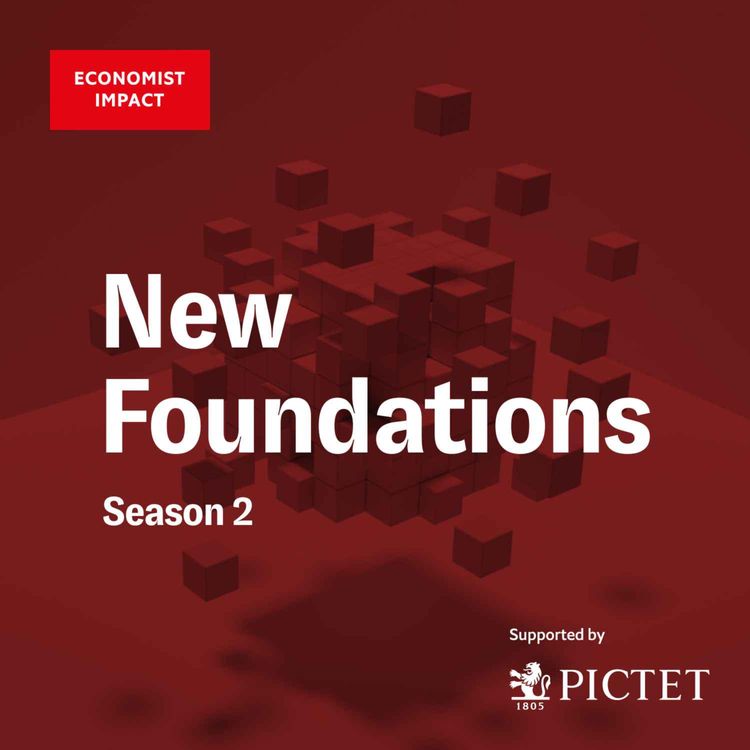
New Foundations
Internet everywhere
Some 3.5 billion people lack access to reliable, high-quality connectivity. But the race to connect the entire planet to the internet is gathering pace. Tech titans are backing megaconstellations of low-orbit satellites to envelop the earth's surface, and several enormous, continent-spanning undersea internet cables promise a big boost to African and Asian connectivity over the next year. Are these efforts enough to ensure universal and access to all? We explore with Teddy Woodhouse from the Alliance for Affordable Internet, Peter Micek from Access Now, Lourdes Montenegro of The World Benchmarking Alliance and Isfandiyar Shaheen, founder of Net Equity.
This episode is supported by Pictet Wealth Management and includes additional commentary from Christopher Seilern, financial analyst at Pictet.
More episodes
View all episodes
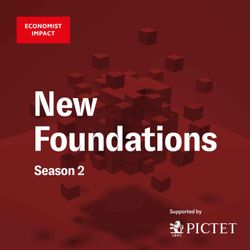
6. Can green hydrogen clean up heavy industry?
22:44||Season 2, Ep. 6For decades, hydrogen has been hailed as a critical fuel of the future—a cleaner alternative to the fossil fuels which power heavy industry, our transport and our homes.Cheaper renewable energy has begun to make “green” hydrogen production more competitive, and innovative ways to use the fuel are emerging too. So is the latest hype around hydrogen justified? What role will it play in powering our clean-energy future? Who will make it, how and for what?We explore what is to come with green hydrogen entrepreneur Raffi Garabedian, industry analyst Meredith Annex from BloombergNEF and Martin Pei, chief technical officer at steelmaker SSAB.This episode is supported by Pictet Wealth Management and includes additional commentary from César Pérez Ruiz, CIO and head of investments at Pictet.
5. How brain computer interfaces could change humanity
27:45||Season 2, Ep. 5The ability to control machines with just our minds is the well-worn stuff of science fiction. But science and engineering advances in brain-computer interfaces (BCIs) have rapidly brought these fantastical ideas into the realm of science fact, with remarkable implications—allowing, for instance, paralysed patients to regain control of their limbs and communicate just by thinking. In this week's episode, we ask whether we’re at a turning point for BCIs, explore what the next decade looks like for medical and consumer applications, and how we can responsibly shape the technology’s development. Featuring Ian Burkhart, BCI pioneer, Florian Solzbacher, co-founder of Blackrock Neurotech, Rajesh Rao, professor of computer science at the University of Washington, and Nicholas Opie, founder of Synchron.This episode is sponsored by Pictet Wealth Management and includes additional commentary from Adrien Brossard, senior healthcare analyst.
3. How wearable tech is disrupting medicine
25:25||Season 2, Ep. 3The market for smartwatches, wristband fitness monitors, smart rings and other wearable health trackers is booming. But could these devices and the data they capture actually transform healthcare? In this episode, we size up the potential of wearables to generate medical breakthroughs and even change how healthcare is delivered. We explore with Tom Hale, chief executive of Oura Health, and wearable tech researchers Jessilyn Dunn, Stephen Friend and Leo Wolansky. This episode is supported by Pictet Wealth Management and includes additional commentary from Alexandre Tavazzi, Pictet's head of CIO office and macro research.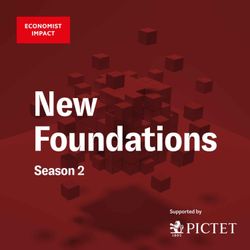
1. A quantum leap for healthcare?
23:10||Season 2, Ep. 1Quantum computers, which harness the peculiar and counter-intuitive properties of the quantum world, promise to usher in a step change in computing power that could transform our world. In this episode, we’ll be investigating what quantum computers might be capable of by looking at one promising area of its potential application: drug discovery and development. We explore with quantum computing expert Shohini Ghose and quantum entrepreneurs Pete Shadbolt and Robert Marino.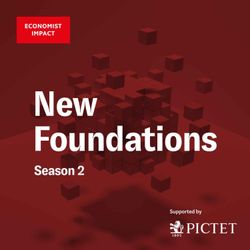
2. Can desalination counter the drought?
21:36||Season 2, Ep. 2Half the world’s population could be living in areas facing water scarcity by as early as 2025. One solution to our water woes would be to turn our global abundance of salt water into clean, safe drinkable water. But in practice, it has so far proved to be difficult to do in a way that is cheap, scalable and energy-efficient. Are things beginning to change? In this episode, we’re looking at how leaps in desalination technology could help us address global water shortages and deliver universal access to safe, clean drinking water, sustainably. We investigate with water and desalination experts Will Sarni, Qilin Li, and Louise Bleach.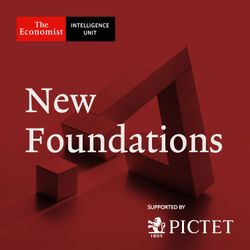
8. Electrify!
27:58||Season 1, Ep. 8Renewable energy, including solar and wind, is rapidly becoming the cheapest form of electricity there is. The prospect of cheap, limitless, emissions-free energy is here. Harnessing it will take a transformation of our infrastructure and demand that consumers and businesses adapt to new technologies. To capture the benefits of clean energy, we’ll need more of our energy use to come from the electric socket, rather than from fuels that flow directly into our cars, homes and factories. We’ll need to electrify everything from home heating systems, to container ships and steel making plants– but how do we do that? In this episode we explore what it takes to transform our economies around sustainable sources of energy, with analyst Albert Cheung, energy startup executive Ramya Swaminathan, innovator and author Saul Griffith. This episode is supported by Pictet Wealth Management and includes additional commentary from Pictet's senior technology analyst Christopher Seilern.Disclaimer: The findings and views expressed in the podcast are for information only and are not intended as an offer or solicitation or any legal, tax or financial advice. Whilst efforts have been taken to verify the accuracy of this information, neither The Economist Intelligence Unit Ltd., nor its affiliates, nor the Pictet Group can accept any responsibility or liability for the use of, or reliance by any person on, the information contained in this podcast. The findings and views expressed in the report do not necessarily reflect the views of the Pictet Group. The content of this podcast is not intended for persons who are citizens of, domiciled or resident in, or entities registered in a country or a jurisdiction in which its distribution, publication, provision or use would violate current laws and regulations.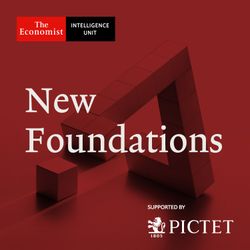
7. Climate-resilient Cities
29:23||Season 1, Ep. 7Cities are at the frontline of climate change. They are major producers of emissions and, as home to more than half the world’s population, they are also where the human impact will be most severely felt. How can innovations in engineering and infrastructure help us re-imagine and re-design our cities to become sources of green innovation? How can cities become more resilient in a climate-stressed future? We explore with urban security and climate experts Robert Muggah, Trude Rauken, Thomas Rau, Sabine Oberhuber, Neil Adger and Kongjian Yu. This episode is supported by Pictet Wealth Management and includes additional commentary from Pictet's head of asset allocation amd macro reserach, Christophe Donay.Disclaimer: The findings and views expressed in the podcast are for information only and are not intended as an offer or solicitation or any legal, tax or financial advice. Whilst efforts have been taken to verify the accuracy of this information, neither The Economist Intelligence Unit Ltd., nor its affiliates, nor the Pictet Group can accept any responsibility or liability for the use of, or reliance by any person on, the information contained in this podcast. The findings and views expressed in the report do not necessarily reflect the views of the Pictet Group. The content of this podcast is not intended for persons who are citizens of, domiciled or resident in, or entities registered in a country or a jurisdiction in which its distribution, publication, provision or use would violate current laws and regulations.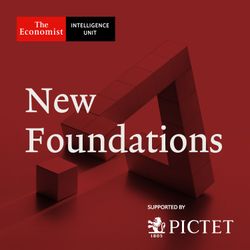
6. The Next Web
32:36||Season 1, Ep. 6Efforts are underway to redesign the way the internet works, with a focus on putting citizens in greater control of their data. In this episode, we explore what a more user-centric data economy might mean for the dominant businesses and business models of our day. Who will be the winners and losers in the future of the data economy? Featuring Jaron Lanier, Tim O'Reilly, Marietje Schaake, and John Bruce.Disclaimer: The findings and views expressed in the podcast are for information only and are not intended as an offer or solicitation or any legal, tax or financial advice. Whilst efforts have been taken to verify the accuracy of this information, neither The Economist Intelligence Unit Ltd., nor its affiliates, nor the Pictet Group can accept any responsibility or liability for the use of, or reliance by any person on, the information contained in this podcast. The findings and views expressed in the report do not necessarily reflect the views of the Pictet Group. The content of this podcast is not intended for persons who are citizens of, domiciled or resident in, or entities registered in a country or a jurisdiction in which its distribution, publication, provision or use would violate current laws and regulations.